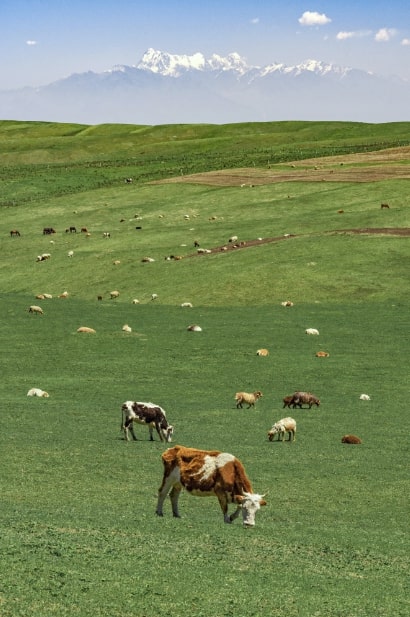We are a family run business specialising in agriculture. Our establishment provides an array of products to help with various areas. This includes everything from food and equipment to clothing and toys. We also have a huge amount of knowledge on the subject of animal health and things you can use here. If there is something you are unsure of, we will be happy to talk to you about it.
Internal parasites can become a problem for various kinds of livestock. As a result, it is necessary to understand how you can keep them under control. In this post, we will be discussing some of the methods you can use to manage parasite problems.
Proper grazing management
The first thing you can do is practice the proper grazing management. Pasture rotation is one of the ways you can stop overgrazing. This is something that increases the danger of infestations. Internal parasite eggs pass on via manure. They reach an infective phase as rapidly as six days later.
Your fields could be subdivided with temporary fencing. Animals might rotate into a new pasture every six days. By the time the animals get out of the old field, the parasites would have reached the infective stage. Larvae are able to live as long as 120 days in moist, cool conditions, but die more rapidly in dry, hot weather.
It is possible to harvest fields for silage so that larvae get exposed to and killed by sunlight and heat. Alternatively, farmers can plan for long rest periods for fields. This way, parasites will die before the animals come back.
Another method you can use is multi-species grazing. Not every species will share the same parasites. For instance, goats and sheep share them. Yet, the same can’t survive in horses and cattle. Graze horses and cattle on the same pasture as goats and sheep to break the parasite life cycle. Do this either at the same time or by using a leader-follower system.
Sanitisation
Next up, keep all stall areas clean to minimise the danger of infestation. You should move manure to compost piles. Or spread it on pastures you don’t use for grazing. Never leave it in stalls for a long time as animals will be around it more frequently and increase the risk of infection. If you require help with animal health, please speak to us.
Use feed containers
Feed your animals out of containers, such as feed bunks or hay mangers. Do this in favour of an on the ground approach to lower the danger of infestations. Water buckets, troughs, and feeders also need regular cleaning to stop faecal contamination.
Animal grouping
You can also try grouping animals. Look at how vulnerable they are to parasites so you are able to properly treat them. For instance, younger animals are typically more vulnerable than adults. You should keep them on safer pastures. Animals that have frequent problems with parasites need to remain on cleaner pastures as well.
You should not overstock either. The heavier the stocks, the greater the infection risk.
Deworming
Finally, you can deworm. Doing faecal examinations to get a worm egg count can help you find out what animals need treatment. Egg counts prior to and after deworming can also aid you in discovering the efficiency of a certain dewormer.
A good tip is to look out for indicators of strange behaviour and appearance. Check anaemia levels frequently too. If you have an animal with mucous membranes that are red-pink or red, they aren’t anaemic. When they are white, pink-white, or pink, they are anaemic and need parasite treatment.
We want everyone to be satisfied when it comes to animal health
At JS Hubbuck Ltd, we work hard to ensure that our customers are happy. This is the case whether we are supplying them with items or offering advice on subjects like animal care. Ultimately we want every farmer in the UK to be successful.
So, if there is anything we can do for you to help with animal health, feel free to contact us.

